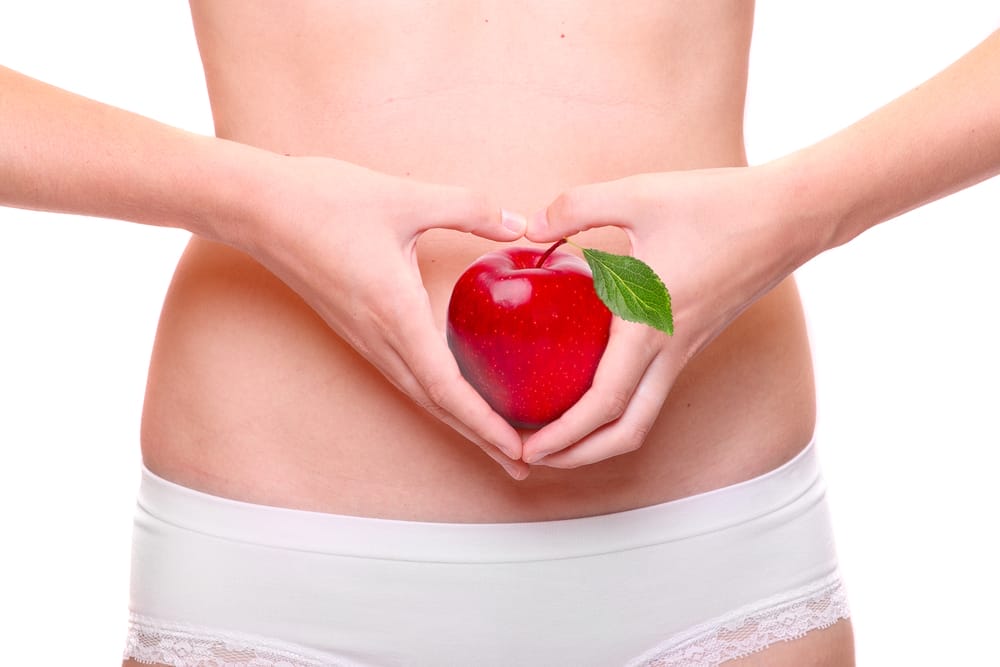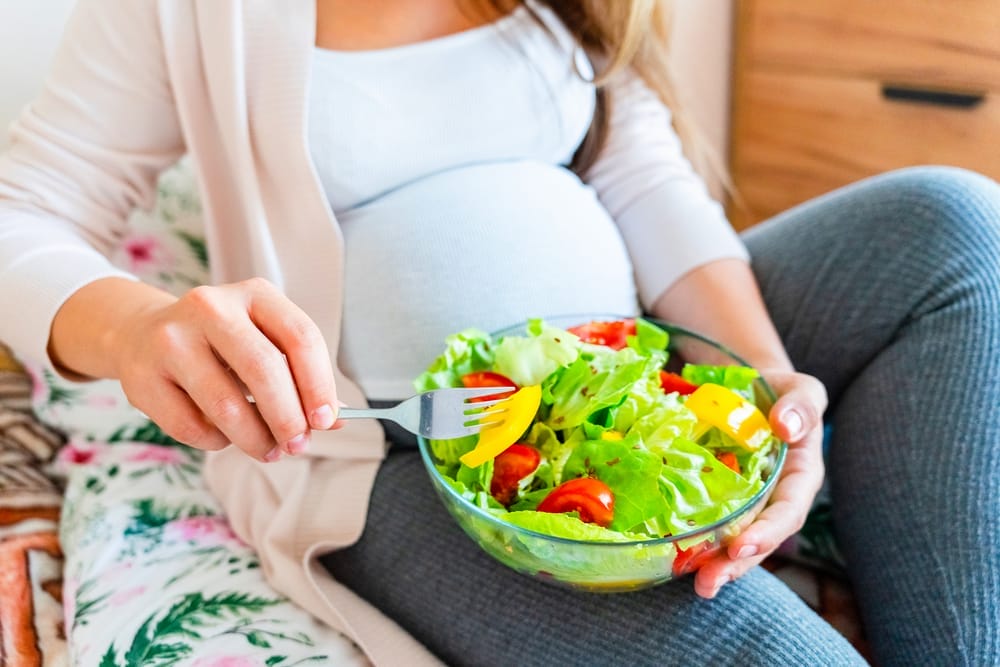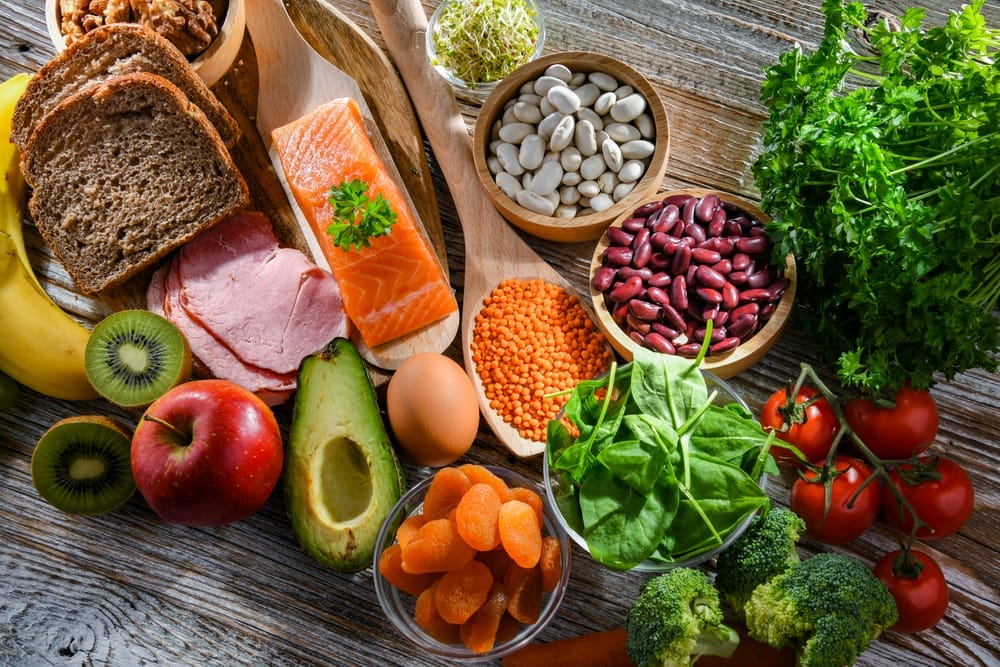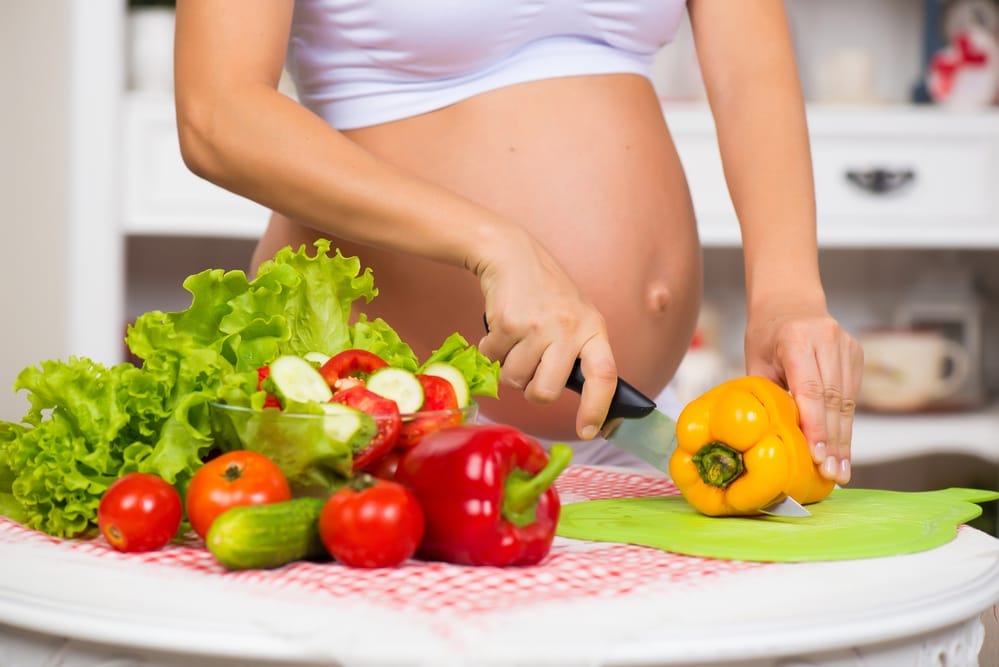In both men and women, diet and other lifestyle factors are important for fertility. Conception is favored by a well-balanced, healthy diet, physical activity and normalized body weight. In contrast, a poor diet, stimulants and stress are definitely not conducive. Sometimes a change in diet resulting in supplying the body with large amounts of ingredients that positively affect the system ofad reproductive, endocrine and immune systems can increase the probability of conception and maintenance of pregnancy by several tens of percent. Find out how to eat and what elements in your diet to pay special attention to, wanting to increase the chance of getting pregnant.
Table of contents
- 1 Fertility disorders – an increasingly common problem in today’s world
- 2 What affects fertility in men and women – factors, body conditions
- 3 Fertility diet – a varied menu is the key to the health of the reproductive system
- 4 Nutrients that benefit female fertility
- 5 Diet for fertility – what to eat?
- 6 Diet for fertility – what products to avoid?
Fertility disorders – an increasingly common problem in today’s world

Infertility is a serious phenomenon affecting an increasing number of couples. It is not without reason that it is increasingly referred to as a disease of civilization, According to statistics, about 20% of people of childbearing age struggle with this problem. Infertility is the inability to get pregnant for 12 months despite regular intercourse without contraception.
Infertility is not a homogeneous phenomenon, different types are distinguished. There is, among others, primary infertility (a woman has never been pregnant before) and infertilitysecondary (the woman was already pregnant, and only later began to struggle with infertility). A very common division is also the division by the physiological cause of the problem, such as hormonal infertility, immune infertility, fallopian tube infertility, uterine infertility.
According to another classification, infertility is divided into congenital in fertility (caused by defects of the fetal organsfetal organs) and acquired in fertility (resulting from organ damage, hormonal disorders or other factors). There is also a division of infertility into relative infertility (temporary, treatable) and infertilitytotal infertility (impossible to cure due to permanent defects in the reproductive system).
What affects fertility in men and women – factors, body conditions
The sharp increase in infertility cases in recent years is related to socio-civilizational factors, such as irregular lifestyle, overwork, lack of sleep, high stress levels, and even exposure to pesticides or environmental pollution. A proper diet and a change to a less stressful and healthier lifestyle can play a significant role in male and female fertility, increasing reproductive capacity.
Factors that can contribute to fertility problems are:
- Hormonal disorders. Imbalances of hormones, such as estrogen, progesterone and testosterone, can significantly affect reproductive processes.
- Metabolic disorders. Among other things, disorders of carbohydrate metabolism, characterized by fluctuations in blood glucose and insulin levels, can result in reduced semen quality, ovulation disorders and problems with pregnancy.
- Defects in the structure of the reproductive system, damage and obstruction of the fallopian tubes, infections and scarring in the genital area can be an obstacle to the proper process of fertilization and embryo implantation.
- Menstrual cycle disorders. Cycle irregularity, polycystic ovarian syndrome (PCOS) and endometriosis are factors that can make it difficult to get pregnant. Also, premature cessation of ovarian function is a factor in female infertility.
- Poor diet. Deficiencies of important nutrients, excess fats and sugars in the diet and unhealthy eating habits can greatly affect fertility.
- Overweight and obesity. Weight disorders can interfere with the regularity of the menstrual cycle in women and reduce semen quality in men. Women with BMI higher than 25 kg/m2 have an increased risk of ovulation disorders and infertility, studies have shown.
- Underweight. Malnutrition is associated with severe deficiencies in essential nutrients, and this in turn leads to endocrine disruption and reduced reproductive capacity.
- Cigarette smoking and alcohol abuse. Harmful substances contained in tobacco and alcoholic beverages can adversely affect semen parameters and reduce the quality of egg cells, and thus significantly reduce the chances of success in conception.
- Stress, emotional problems. High levels of stress can interfere with the regularity of the menstrual cycle in women and negatively affect sperm quality in men. Depressive, anxiety and neurotic disorders can affect the endocrine and immune systems and adversely affect the ability to get pregnant.
- Exposure to toxic substances and radiation. Exposure to certain chemicals in the workplace or environment and some forms of radiation can have a negative effect on gametes, hindering the process of conception and reducing fertility.
- Diseases. Diabetes, hypertension, thyroid conditions, among others, can negatively affect the functioning of the reproductive system and reduce fertility.

A well-balanced diet, providing adequate amounts of all nutrients (proteins, carbohydrates, fats, vitamins and minerals) is a prerequisite for an optimally functioning body, including the reproductive and endocrine systems. Some of these elements, such as zinc, folic acid and omega 3 acids, are thought to play a particularly important role for reproductive function. Wanting to increase the chance of having offspring, we should therefore ensure that they are increased in our daily diet.
In order to improve fertility, in addition to introducing a rich, varied diet, it is also worth avoiding harmful substances, smog, stress, and trying to maintain a healthy body weight and ensure regular physical activity of moderate intensity.
It is also worth paying attention to dietary supplements specifically dedicated to people trying to have offspring, such as Prenatalin, NovuVita Vir or NuviaLab Female Fertility, Thanks to a special selection of active ingredients, they supplement all the important elements and increase the chance of becoming a parent.
Nutrients that benefit female fertility
Nutrients that support fertility and improve the function of the female reproductive system are:
- Folic acid (folate) – a very important ingredient when trying to get pregnant. It activates the growth of egg cells and takes care of their quality. Supports the normal development of the fetus, helps prevent neural tube defects in the developing fetus. Folic acid should be started supplementing about 3 months before planned conception.
- Iron – affects the proper transport of oxygen to tissues, including reproductive organs, prevents ovulation disorders, has a beneficial effect on fetal growth and development, reduces the likelihood of heart disease in the newborn.
- Omega 3 and omega 6 fatty acids – improve fertility by regulating the menstrual cycle and supporting hormone production. They have a beneficial effect on the amount of cervical mucus and sperm quality.
- Protein – is one of the most important nutrients for women planning pregnancy. It is important for the production of female sex hormones and the proper growth of egg cells.
- Antioxidants (vitamin C, vitamin E, vitamin A, selenium) – protect sex cells from free radical damage. They support the defense barrier of the entire body against oxidative stress.
- Vitamin D – affects hormonal balance, improves ovarian function, supports the process of egg maturation.
- Iodine – helps regulate the production of thyroid hormones, increases the likelihood of pregnancy and reduces the risk of miscarriage.
- Zinc – one of the most important minerals when trying to have a baby. It helps regulate hormone production, counteracts menstrual cycle disruptions, and has a positive effect on the quality of egg cells.
- Calcium – is important for normal growth and development of the fetus. Improves metabolic processes.
- Dietary fiber – helps normalize blood sugar levels, counteracts appetite disorders, supports cleansing the body of toxins.
- B vitamins – stimulate the secretion of sex hormones, help regulate the menstrual cycle, positively affect the process of implantation of the embryo.
Nutrients that affect fertility in men
A healthy diet affects sperm production, sperm motility and the overall health of the reproductive system. Below are important nutrients that benefit male fertility:
- Zinc – the most important mineral for men trying to have a baby. It is essential for sperm production and maintaining a healthy reproductive and endocrine system. Beneficially affects sperm count and viability.
- Selenium – has antioxidant properties, protects germ cells from damage, promotes sperm motility and viability.
- Omega3 and omega 6 fatty acids – as in women,omega 3 and 6fatty acids support the reproductive system in men. They improve sperm quality and improve hormonal balance.
- Vitamin C, vitamin E – neutralize harmful free radicals, improve sperm quality.
- B vitamins – support the production of sex hormones, including testosterone, positively affect semen quality and potency.
- Vitamin D – plays a significant role in regulating testosterone levels, is also important for sperm count and quality.
- Arginine – an amino acid that enhances the production of nitric oxide, thereby improving blood flow through the genitals. It improves the quality of erections and positively affects reproductive capacity.
Diet for fertility – what to eat?

A diet to support fertility in men and women should focus on foods that, on the one hand, improve the parameters of the reproductive cellsof reproductive cells, support the work of the sexual system and improve hormonal balance, and on the other hand, generally strengthen the body, promote good immunity and vitality.
Products that are worth including in the menu during the period of trying for a baby are:
- Green vegetables (e.g. spinach, broccoli, kale, lettuce) – abound in powerful antioxidants, folic acid, minerals, vitamin C.
- Red, orange, purple, yellow and white vegetables – are rich in B vitamins, minerals valuable for fertility, vitamin A and E, as well as valuable for the human body plant pigments such as carotenoids, lycopene and other substances that play the role of antioxidants.
- Fruits – contain vitamin C and other antioxidants that protect germ cells.
- Marine fish – an excellent source of omega 3 and 6 acids, zinc, selenium and vitamin D, which are valuable for fertility.
- Nuts – are rich in zinc, selenium and unsaturated fatty acids that take care of good sperm quality and proper reproductive function.
- Seeds and seeds (e.g. chia seeds, pumpkin seeds, flaxseeds, sunflower seeds) and whole grain products (groats, wholemeal bread, cereals, bran, brown rice) – are a great source of dietary fiber, bio-elements valuable for fertility, such as magnesium, zinc, potassium, copper, iron, and B vitamins beneficial for the reproductive system.
- Red meat, offal (in moderate amounts) – contain a lot of iron, which is valuable during the period of trying for a child.
- Dairy products (milk, buttermilk, yogurt, cheese) – contain a lot of calcium and protein, positively affect the menstrual cycle, sperm quality and reproductive capacity.
- Eggs – are rich in protein, vitamin E, zinc, calcium, vitamin D, components extremely important for reproductive health.
- Seafood – abundant in protein, iodine, calcium, omega 3 acids. Positively affect libido, increase potency, make it easier to get pregnant.
- Legume seeds (e.g. beans, soybeans, chickpeas, lentils) – contain a lot of zinc and protein, as well as B vitamins, vitamin E and valuable phytoestrogens. They help regulate the menstrual cycle, support hormonal balance, improve semen quality.
Diet for fertility – what products to avoid?
Just as important as choosing the right products is avoiding certain substances and foods that can adversely affect reproductive health.
Here is a list of products you should limit in your fertility diet:
- products rich in unhealthy types of fats (saturated and trans fats),
- refined sugar,
- sweets,
- processed foods,
- white flour,
- salt,
- red meat,
- caffeine,
- alcohol,
- nicotine.
Sources:
- https://www.healthline.com/health/infertility
- https://www.healthline.com/health-news/here-are-5-nutrients-that-can-help-women-get-pregnant
- https://www.healthline.com/nutrition/16-fertility-tips-to-get-pregnant

